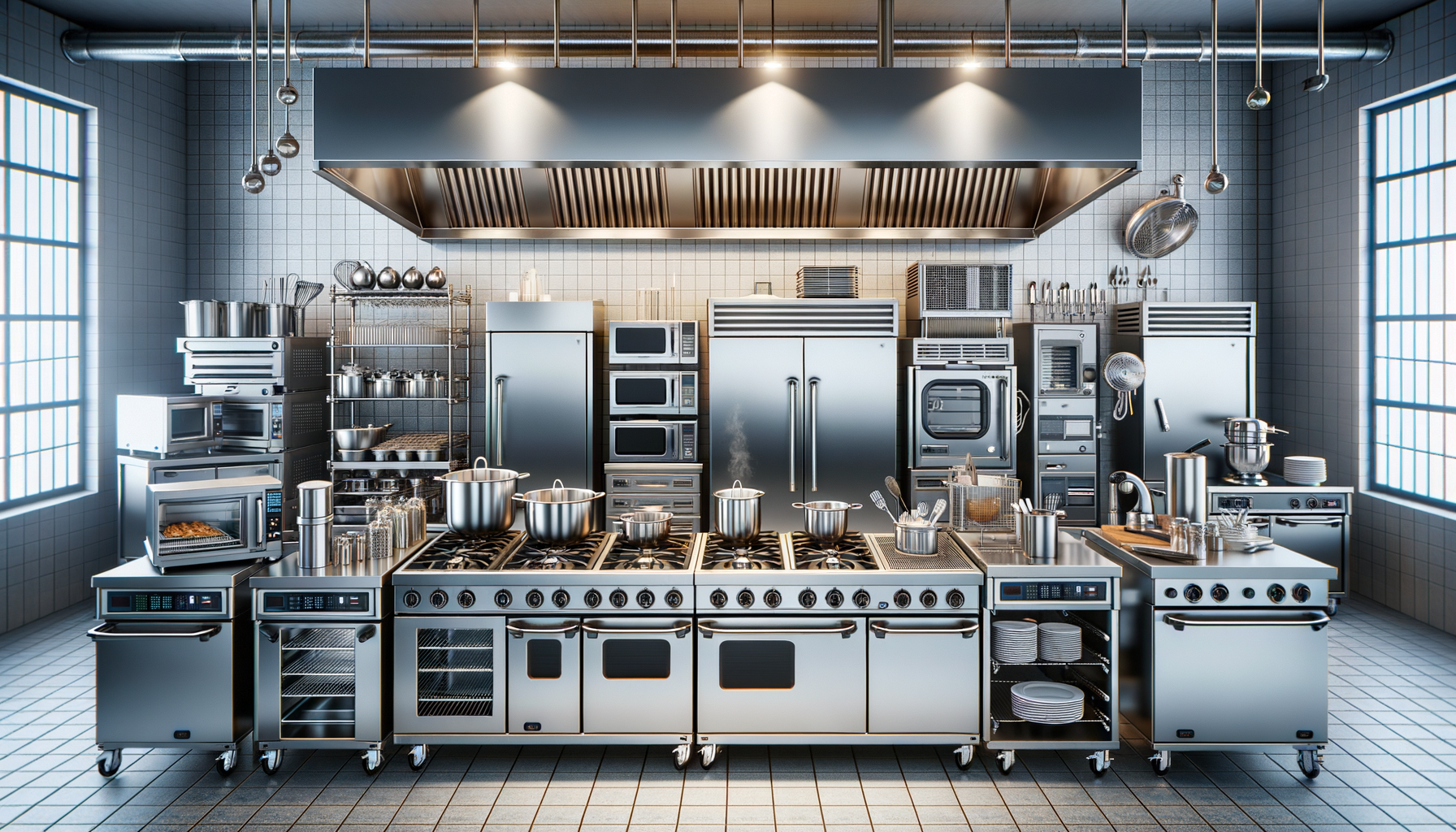Introduction to Commercial Kitchen Equipment
In the bustling world of food service, commercial kitchen equipment forms the backbone of culinary success. These essential tools range from industrial ovens to specialized refrigerators, each designed to withstand the rigorous demands of a professional kitchen. The significance of selecting the right equipment extends beyond mere functionality; it influences the efficiency, safety, and quality of food production. As the food industry evolves, so does the technology behind these appliances, making it crucial for businesses to stay updated with the latest advancements.
Types of Commercial Kitchen Equipment
Commercial kitchen equipment can be categorized into several types, each serving a unique purpose. Key categories include:
- Cooking Equipment: Includes ranges, ovens, fryers, and grills, essential for preparing a variety of dishes.
- Refrigeration: Comprising walk-in coolers, reach-in refrigerators, and freezers, crucial for preserving ingredients.
- Food Preparation: Encompasses mixers, slicers, and food processors that aid in efficient meal prep.
- Warewashing: Dishwashers and sinks designed to handle large volumes of dishes and ensure sanitation.
Each category is tailored to meet specific operational needs, ensuring that kitchens can operate smoothly and efficiently.
Choosing the Right Equipment for Your Kitchen
Selecting the appropriate commercial kitchen equipment involves considering several factors. First, assess the size and layout of your kitchen to determine the space available for equipment. Next, consider the type of cuisine and the volume of food production, as these will dictate the specific appliances needed. Energy efficiency is another important factor, as it can significantly impact operational costs. Brands and warranties should also be evaluated to ensure reliability and long-term support. By carefully balancing these considerations, businesses can optimize their kitchen setup for maximum productivity.
Maintenance and Care of Commercial Kitchen Equipment
Maintaining commercial kitchen equipment is vital to prolonging its lifespan and ensuring safety. Regular cleaning and inspections are necessary to prevent buildup of grease and grime, which can lead to malfunctions or health hazards. Establishing a routine maintenance schedule can help identify potential issues before they become costly repairs. Additionally, training staff on proper usage and care can minimize wear and tear. Investing in quality equipment and adhering to manufacturer guidelines are key strategies for maintaining a reliable kitchen environment.
The Future of Commercial Kitchen Equipment
The future of commercial kitchen equipment is being shaped by technological advancements and sustainability initiatives. Smart appliances that integrate with kitchen management systems are becoming more prevalent, offering features like remote monitoring and predictive maintenance. Energy-efficient models are also gaining popularity, aligning with the growing emphasis on reducing carbon footprints in the food industry. As consumer preferences shift towards healthier and more sustainable options, the equipment used in kitchens will continue to evolve, driving innovation and efficiency in food service operations.
Conclusion: Equipping Your Kitchen for Success
Commercial kitchen equipment is a critical investment for any food service business. By understanding the various types of equipment, making informed choices, and maintaining these tools properly, businesses can enhance their operational efficiency and food quality. As the industry progresses, staying informed about technological advancements will be essential to remain competitive. Ultimately, the right equipment not only supports the culinary process but also contributes to the overall success and sustainability of the business.








